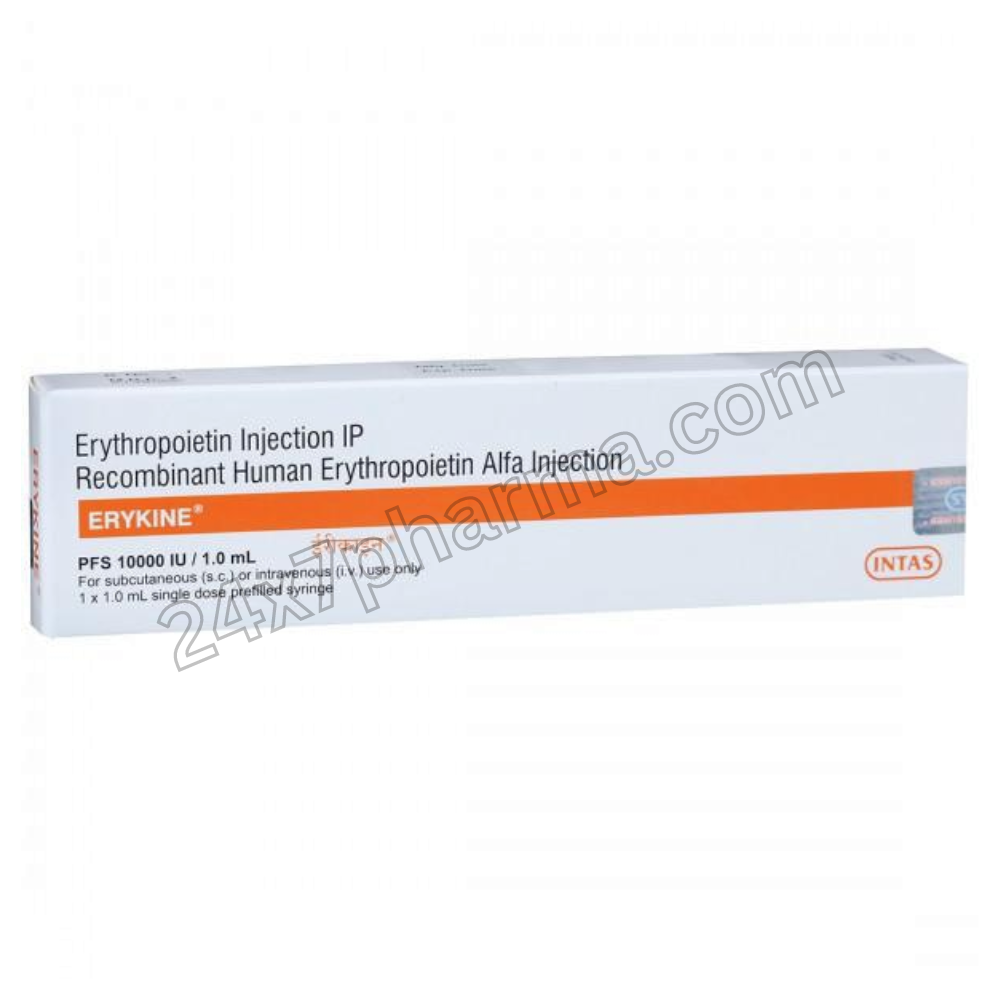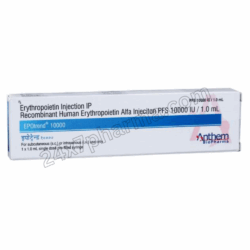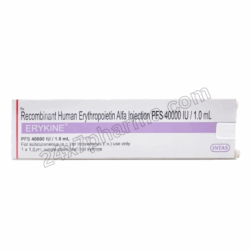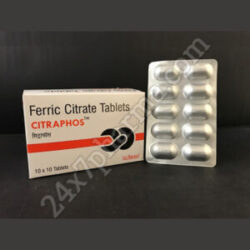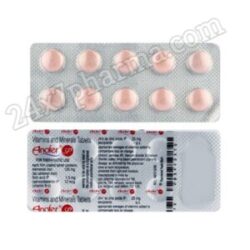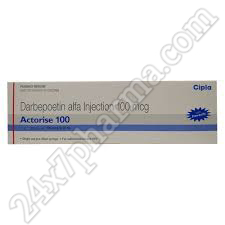What is Erykine 10000 IU Injection?
Erykine 10000 IU Injection is a medication that contains erythropoietin, a naturally occurring hormone produced by the kidneys. Erythropoietin plays a vital role in stimulating the production of red blood cells (RBCs) in the bone marrow. This medication is used primarily to treat anemia, especially in patients suffering from chronic kidney disease (CKD) or those undergoing chemotherapy for cancer. Anemia, characterized by a lack of healthy red blood cells, can lead to fatigue, weakness, and a diminished quality of life. Erykine 10000 IU Injection helps boost the production of red blood cells, addressing the root cause of anemia and restoring energy and vitality in patients.
How Does Erykine Work?
Erykine 10000 IU Injection works by mimicking the action of the naturally occurring hormone erythropoietin, which is typically produced in the kidneys. In healthy individuals, erythropoietin is released in response to low oxygen levels in the blood, stimulating the bone marrow to produce more red blood cells, which carry oxygen to tissues throughout the body.
In patients with chronic kidney disease, the kidneys may not produce enough erythropoietin, leading to anemia. Chemotherapy treatments can also damage the bone marrow, reducing red blood cell production. When administered, Erykine 10000 IU Injection binds to receptors in the bone marrow and stimulates the production of red blood cells. Over time, this leads to an increase in the oxygen-carrying capacity of the blood, alleviating the symptoms of anemia and improving the patient’s overall well-being.
Uses of Erykine 10000 IU Injection
Erykine 10000 IU Injection is primarily used to treat anemia in the following conditions:
- Chronic Kidney Disease (CKD): Patients with CKD often experience a decline in kidney function, leading to reduced production of erythropoietin. This can result in anemia, which is treated with Erykine to stimulate red blood cell production.
- Chemotherapy-Induced Anemia: Cancer treatments such as chemotherapy can impair the bone marrow’s ability to produce red blood cells. Erykine helps increase red blood cell counts in these patients, improving their energy levels and quality of life.
- HIV-Related Anemia: Certain HIV treatments can lead to anemia, and Erykine 10000 IU Injection can be used to manage this condition, helping to prevent fatigue and other symptoms associated with low red blood cell counts.
- Anemia Due to Major Surgery: Erykine 10000 IU Injection may also be given to patients preparing for surgery, especially if they are at risk of blood loss. The medication increases red blood cell production, reducing the need for blood transfusions during and after surgery.
Other Strengths
Erykine Injection is available in various strengths to accommodate different medical needs;
Side Effects of Erykine
While Erykine 10000 IU Injection is generally well-tolerated, some patients may experience side effects. It is important to be aware of potential reactions and consult a healthcare provider if any concerns arise.
- High Blood Pressure (Hypertension): One of the most common side effects is an increase in blood pressure. Regular monitoring of blood pressure is recommended for patients receiving this injection, as uncontrolled hypertension can lead to headaches, dizziness, and other complications.
- Injection Site Reactions: Some patients may experience pain, redness, or swelling at the site of injection.
- Flu-Like Symptoms: Patients may develop flu-like symptoms such as fever, chills, body aches, and fatigue after receiving the injection. These symptoms usually resolve on their own but can be managed with over-the-counter medications if necessary.
- Blood Clots: In rare cases, Erykine 10000 IU Injection may increase the risk of blood clots. Symptoms of blood clots include swelling, pain, and warmth in the legs (deep vein thrombosis) or sudden shortness of breath and chest pain (pulmonary embolism). Patients with a history of blood clots or cardiovascular disease should be monitored closely.
- Iron Deficiency: As Erykine 10000 IU Injection stimulates red blood cell production, the body may use more iron than usual. Some patients may need iron supplements to support the production of new red blood cells.
Warnings & Precautions
- Monitor Blood Pressure: Because Erykine can cause an increase in blood pressure, patients should have their blood pressure monitored regularly, especially if they have a history of hypertension.
- Risk of Blood Clots: Patients with a history of blood clots or cardiovascular problems should be closely monitored while receiving this medication. Erykine can increase the risk of clot formation, which can lead to complications such as deep vein thrombosis, heart attacks, or strokes.
- Iron Levels: Before and during treatment with Erykine 10000 IU Injection, it is important to monitor iron levels. Low iron stores can reduce the effectiveness of the medication. Iron supplementation may be required to ensure the body has enough resources to produce red blood cells.
- Tumor Progression in Cancer Patients: In some cancer patients, erythropoietin-stimulating agents like Erykine may accelerate tumor growth or decrease survival. This medication should only be used in cancer patients when the benefits outweigh the risks, and treatment should be closely supervised by a healthcare provider.
- Allergic Reactions: Rarely, patients may develop an allergic reaction to Erykine 10000 IU Injection, which could manifest as a rash, difficulty breathing, or swelling. If any signs of an allergic reaction occur, immediate medical attention is required.
Frequently Asked Questions (FAQ)
Q1. Does Erykine affect my blood pressure?
Ans: Yes, Erykine may increase your blood pressure, so it’s important to monitor it regularly during treatment. Inform your doctor if you notice any changes in your blood pressure.
Q2. Can Erykine cause allergic reactions?
Ans: Although rare, some people may experience allergic reactions, including rash, itching, or swelling. Seek immediate medical help if you experience difficulty breathing or swelling in the face, tongue, or throat.
Q3. How should Erykine be stored?
Ans: Erykine should be stored in the refrigerator at 2-8°C (36-46°F). Do not freeze it or expose it to direct sunlight. If the injection solution becomes discolored or contains particles, do not use it

